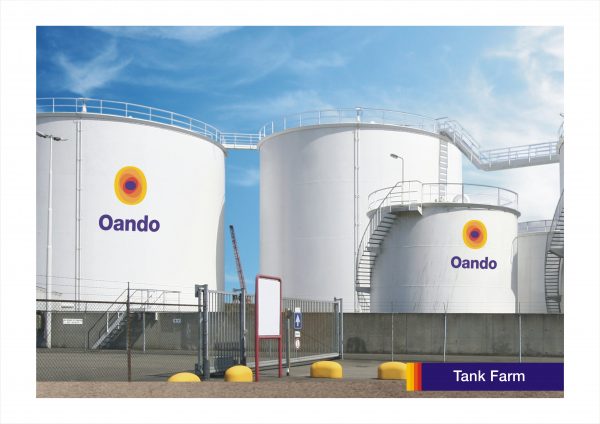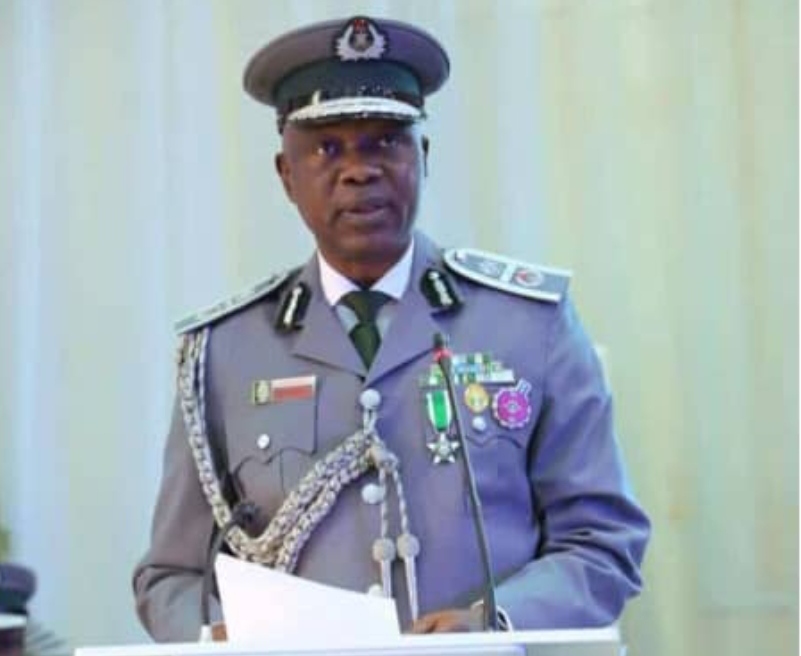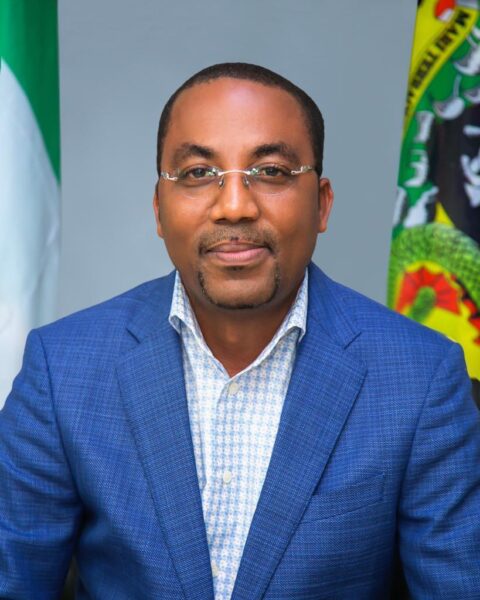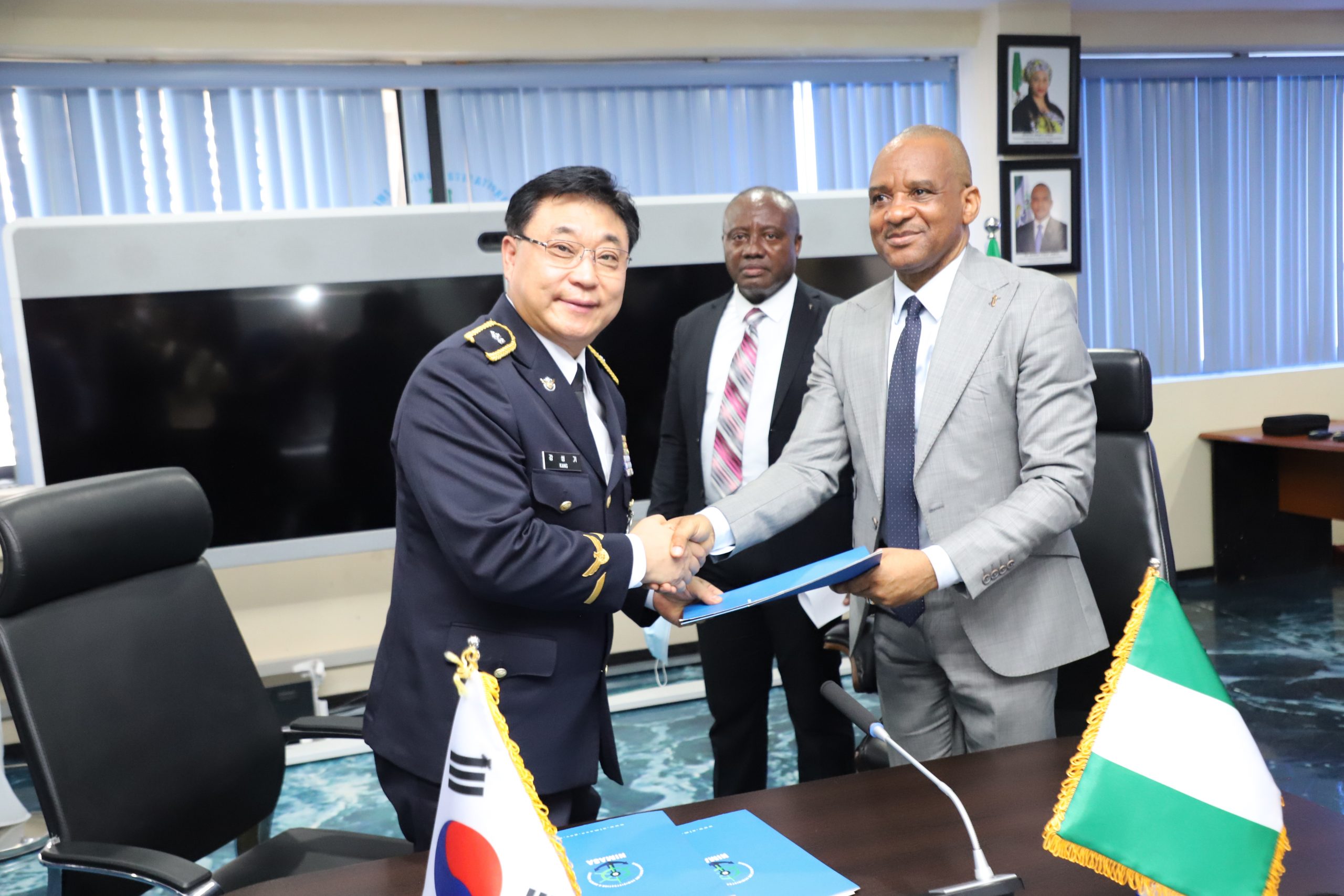Why DPR Approves Unregulated Tank Farms In Lagos

· DPR lifts ban on bunkering license issuance
By Kenneth Jukpor
Top Nigerian politicians are guilty of influencing the haphazard establishment of tank farms in Apapa, Ajegunle and Ijegun-Satellite town, a situation which has endangered millions of lives and valuable properties in the state, whilst disrupting port operations as over 10,000 tankers ply the Lagos port access roads on a daily basis.
A top managerial source at the Department of Petroleum Resource (DPR) revealed this toMMS Plus on the sidelines, during the 12th edition of the Oil Trading & Logistics (OTL) Africa Downstream Week in Lagos, last week.
The DPR source lamented that the efforts of the agency to spurn tank farm projects which didn’t meet the Environment Impact Assessment (EIA) were overruled by the influence of the owners of the tank farms who were either top politicians or their cronies.
While the unpleasant situation has seen over 60 tank farms situated along the Apapa Road, over 30 tank farms have also been sited at Ijegun-Satellite town, a community predominantly inhabited by local residents.
According to him, DPR has admitted its inefficiency in procedures for licensing tank farm facilities in Lagos State, and the agency was exploring solutions to the problem
“I will admit that over time we have seen situations where facilities tend to come up within a particular cluster and DPR is looking at its rules with a view to tightening them a bit to make sure this doesn’t continue to happen” he said.
Meanwhile, the Federal Government has baulked on any proposal for the relocation of the tank farms as experts posit that the cost of relocating a tank farm is almost the sum needed to build a new one.
Recall that the Lagos State Government recently suspended approvals for development of tank farms in Apapa as part of efforts to restore sanity and prepare for immediate and long term solutions to the Oshodi-Apapa corridor.
The State Government came up with this policy after a closed door meeting with stakeholders in the maritime and transport sectors, including Nigeria Ports Authority (NPA), Nigerian Shippers’ Council, Tank Farm Owners, DPR, Security Agencies and Freight Forwarding Agents, chaired by State Governor, Mr. Akinwunmi Ambode.
DPR has also failed to ensure that tank farm owners comply with holding bay requirements, as most of the tank farms don’t have holding bays, let alone the requisite one which should contain a minimum of 200 tankers.
An Environmental management expert at DPR, recently told our correspondent that the ideal practice in the establishment of tank farms is to have them located in areas that weren’t occupied by residents but he lamented that the business opportunities of these facilities attracted residents to the locations.
“Today we are faced with a dilemma with the decision to relocate the tank farms or the host communities. You can’t just move people from their residents and relocating these tank farm projects is also a challenge” he said.
The source who is also a specialist in Process Safety and Risk Assessments, noted DPR ensures that adequate firewalls and firebricks are used in tank farms operating the country to curb the effects of possible fire disasters.
In another development, DPR has lifted the ban on ship bunkering, issuing five licenses to indigenous operators for the services.
While the development affords Nigerian investors and downstream operators opportunities to generate income from the annual ship traffic to Nigeria which has stood at an average of 4300 vessels in the last five years, there is also an international conspiracy limiting major carriers from bunkering in Nigeria.
As a result of the problem of illegal bunkering, major shipping lines like Grimaldi, Maersk Line, among others never take bunker from Nigerian sources because the global insurance institution classifies Nigerian bunkering services as ‘high risk’.
Speaking to MMS Plus during an exclusive chat, the Chief Executive Officer of Sopetro Marine Limited and Downstream Coordinator of the Ship Owners Association (SOAN), Mr. Mina Oforiokuma lamented that international vessels would rather stop offshore Abidjan, Luanda or other places to bunker because they could lose their insurance for bunkering in Nigeria.
“Lagos is the only major port where international vessels don’t officially bunker their vessels. The major ports in Africa like Durban, Cape Town, Luanda, Abidjan, Dakar, etc., have bunker services but Lagos doesn’t have. What this means is that if a large vessel comes to Lagos from Europe for instance and it needs fuel because its next journey is to Luanda in Angola, that vessel cannot officially bunker in Lagos because we don’t have such services”, he said.
Within the West African coast few major international bunker traders such as Monjasa bunkering and Dan bunkering, both of Denmark hold sway; while SK Shipping from Korea is the major global bunkering company that supplies all Chinese shipping fleet in the region.
Explaining further, Mina said: “A Maersk Line ship wouldn’t go along a rickety Nigerian ship to take bunker no matter how cheap because they put the safety of their vessels in danger as those barges aren’t in class or insured. Any international ship take risks taking bunker from such sources could lose its insurance and if anything incident occurs the company faces the consequence”
· NNPC re-enters crude affreightment
Seven years after falling out of reckoning in the global oil freighting trade, the Nigerian National Petroleum Corporation (NNPC), on Tuesday, announced the re-entry of its subsidiary, NIDAS Shipping Services, into the international shipment of crude oil and petroleum products.
This development would see NIDAS enjoy and optimize right of first refusal offer in the NNPC annual crude oil term and Direct-Sale-Direct Purchase (DSDP) agreements with off-takers.
Oil and gas operators have highlighted the success of other nations like Brazil and Malaysia were the shipping arm of their respective oil corporations, Petrobras and Petromas had hundreds of oil vessels, as they lampooned NNPC for its inability to manage a transport arm for the purpose of carrying the nation’s oil.
Under the terms of the deal, the off-takers are obligated to offer the NNPC shipping subsidiary the right of first refusal in freighting of cargoes.
NIDAS’s re-entry, according to NNPC Spokesman, Ndu Ughamadu, was in tandem with the ongoing strategic re-engineering of some NNPC subsidiaries to ensure multiple income streams and value addition to the national oil company, in line with the aspiration of its Group Managing Director, Dr. Maikanti Baru.
According to Ughamadu, NIDAS, as a first step to regaining its market position, has established a robust chartering and operation desk in its UK office to help the company secure sea-going vessels from spot market to buoy its operations and give it strong competitive edge.
Ughamadu said the company’s presence was already generating some positive traction in the international freight space as global tanker fixture’s report last week acknowledged the chartering of LRI tanker, MV Atlantica Bridge by NIDAS to load jet fuel from El Dekheila Port, Egypt for delivery to Nigeria for Duke Oil.
“The fixture report also captured NIDAS booking of tanker Res Cogitans to load Mercuria’s gasoline cargo for early-November loading from Europe’s ARA (Amsterdam-Rotterdam-Antwerp) region to Offshore Lagos.
“The long-term aspiration of the company is to own and operate fleet to secure a significant market share in the global shipping market”, he explained.
Ughamadu added that the development was part of the GMD’s 12 Business Focus Areas (12BUFA) which he unfolded when he took over the leadership of the corporation in 2016.
Incorporated in 2007 as a Joint Venture between NNPC, Daewoo Shipbuilding and Marine Engineering Company Limited (DSME), NIDAS is presently a wholly owned subsidiary of the corporation.
Subsequently, a Board of Directors was inaugurated by the GMD with Engr. Henry Ikem Obih, Chief Operating Officer Downstream, as chairman, while Mr. Lawal Sade was appointed Managing Director with mandate to drive the turn-around process and effective re-entry strategy of NIDAS into the international oil shipping business








